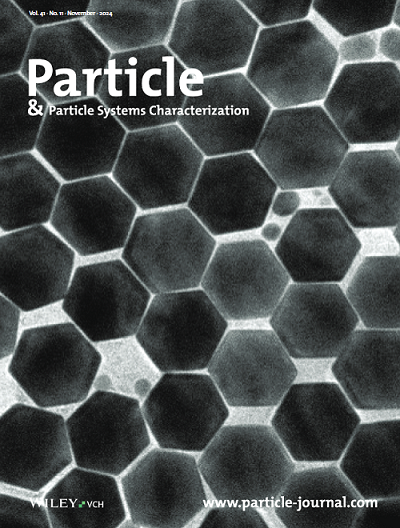A Comprehensive Review on Antibacterial, Anti-Inflammatory and Analgesic Properties of Noble Metal Nanoparticles
IF 2.7
4区 材料科学
Q3 CHEMISTRY, PHYSICAL
引用次数: 0
Abstract
Their health industry is facing challenges due to a rise in mortality rates brought on by various multi-drug-resistant bacterial strains. As a result, new and improvedantibacterial drugs are urgently needed. Similarly, when some unwanted foreign pathogensenter the cellular premises to disturb its homeostasis, inflammation develops as an immune reaction. However, these immune responses also become a double-edged sword when the inflammatory reaction lasts for a long time, and pain is also linked to inflammatory responses. Inflammation and pain are both signs of tissue injury. Pain is,by definition, an unpleasant experience that ultimately interferes with their normalwell-being. Hence, bacterial infection, inflammation, and pain need medical assistance to maintain homeostasis. Conventional medicines possess so many repercussive effects, which then demand a replacement with a less toxic and more efficient modern drug. In their review article, for the first time, they present recent advancements in biomedical applications such as the antimicrobial, anti-inflammatory, and analgesic properties of noble metal nanoparticles. Noble metals have limited availability in the earth's crust. Hence, their physicochemical characterizations and applications are greatly limited. Still, there are some interesting research findings that offer a significant ray of hope for the health sector all over the world.

贵金属纳米粒子的抗菌、消炎和镇痛特性综述
由于各种多重耐药菌株导致死亡率上升,医疗卫生行业正面临着挑战。因此,迫切需要新的改良抗菌药物。同样,当一些不想要的外来病原体进入细胞内扰乱其平衡时,就会产生炎症这种免疫反应。然而,当炎症反应持续很长时间时,这些免疫反应也会成为一把双刃剑,疼痛也与炎症反应有关。炎症和疼痛都是组织损伤的表现。顾名思义,疼痛是一种不愉快的体验,最终会影响人体的正常健康。因此,细菌感染、炎症和疼痛需要医疗援助来维持体内平衡。传统药物具有许多反作用,因此需要用毒性更小、效率更高的现代药物来替代。他们在综述文章中首次介绍了贵金属纳米粒子在生物医学应用方面的最新进展,如抗菌、消炎和镇痛特性。贵金属在地壳中的供应有限。因此,它们的物理化学特性和应用受到很大限制。尽管如此,一些有趣的研究成果还是为全世界的健康领域带来了一线曙光。
本文章由计算机程序翻译,如有差异,请以英文原文为准。
求助全文
约1分钟内获得全文
求助全文
来源期刊

Particle & Particle Systems Characterization
工程技术-材料科学:表征与测试
CiteScore
5.50
自引率
0.00%
发文量
114
审稿时长
3.0 months
期刊介绍:
Particle & Particle Systems Characterization is an international, peer-reviewed, interdisciplinary journal focusing on all aspects of particle research. The journal joined the Advanced Materials family of journals in 2013. Particle has an impact factor of 4.194 (2018 Journal Impact Factor, Journal Citation Reports (Clarivate Analytics, 2019)).
Topics covered include the synthesis, characterization, and application of particles in a variety of systems and devices.
Particle covers nanotubes, fullerenes, micelles and alloy clusters, organic and inorganic materials, polymers, quantum dots, 2D materials, proteins, and other molecular biological systems.
Particle Systems include those in biomedicine, catalysis, energy-storage materials, environmental science, micro/nano-electromechanical systems, micro/nano-fluidics, molecular electronics, photonics, sensing, and others.
Characterization methods include microscopy, spectroscopy, electrochemical, diffraction, magnetic, and scattering techniques.
 求助内容:
求助内容: 应助结果提醒方式:
应助结果提醒方式:


